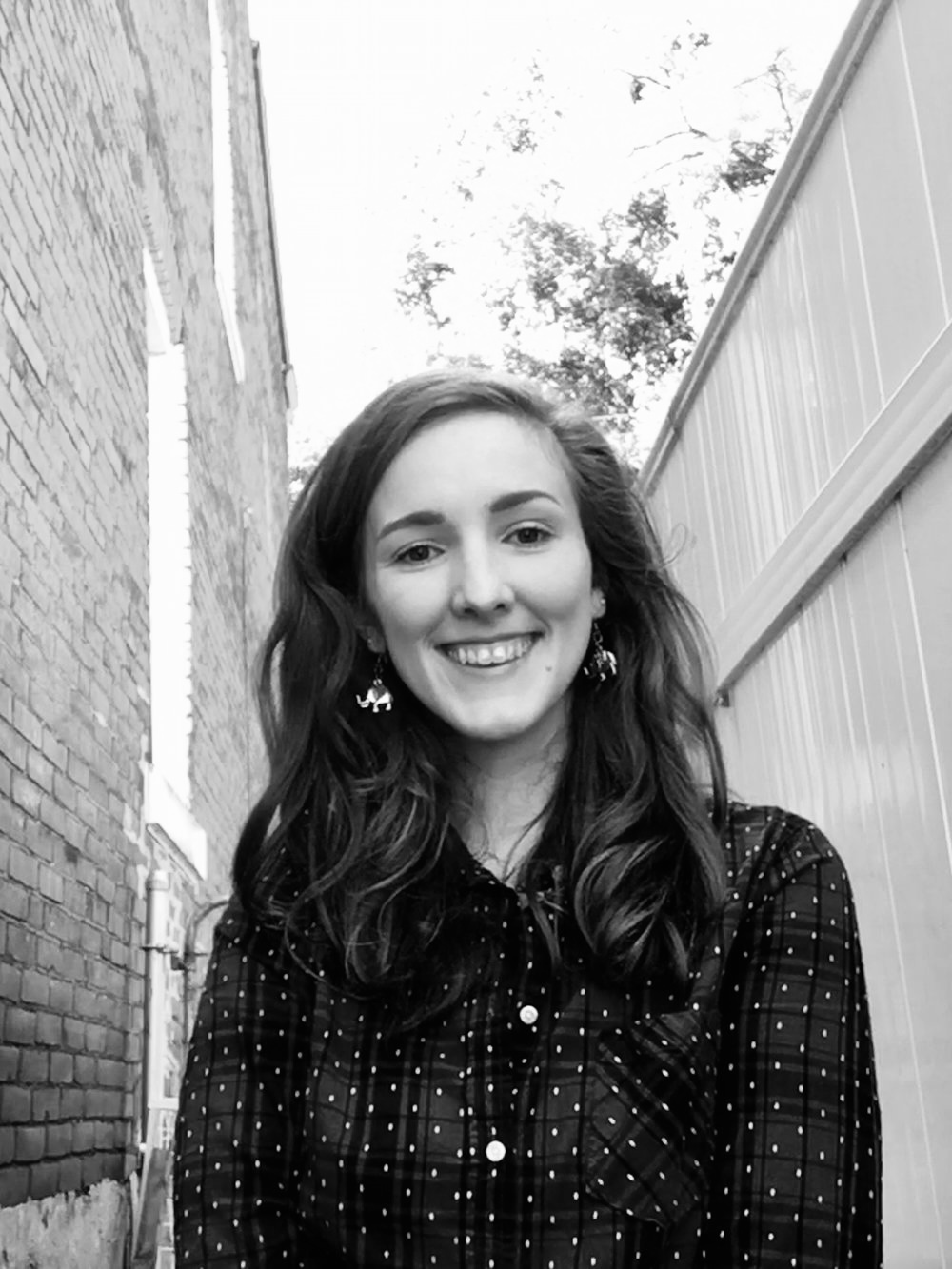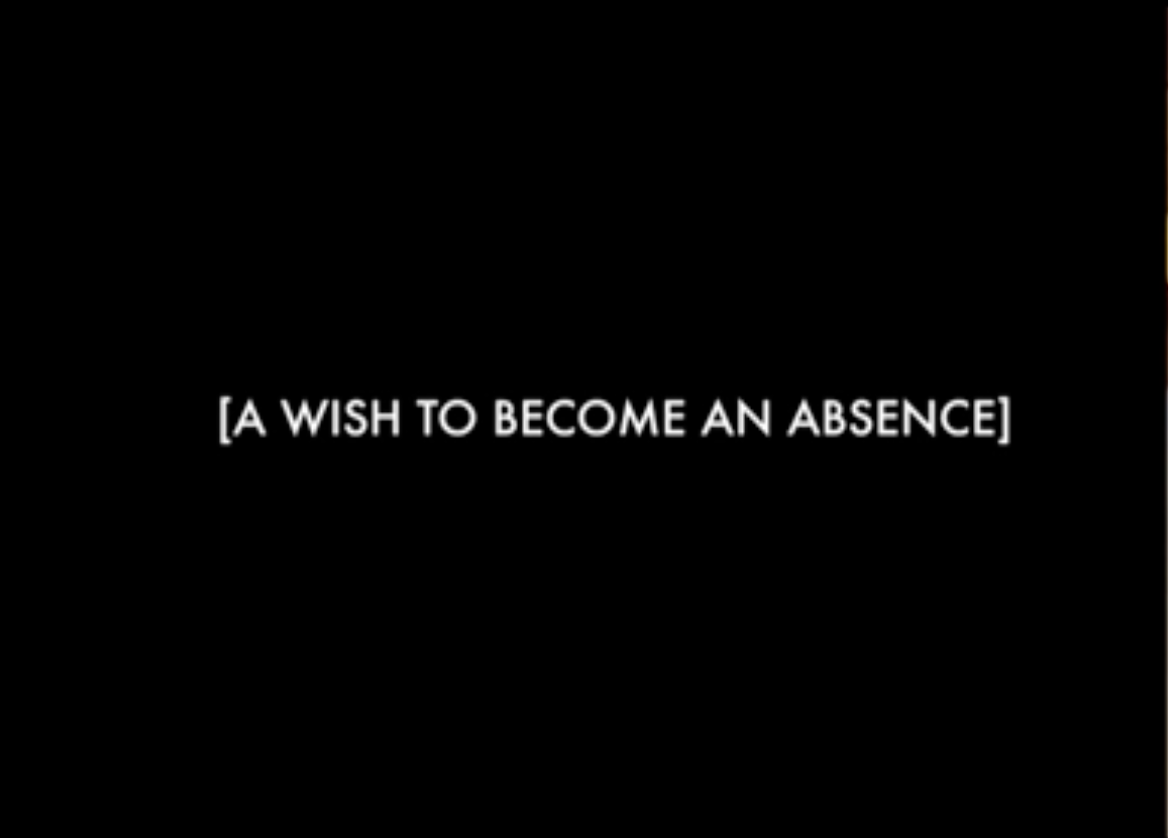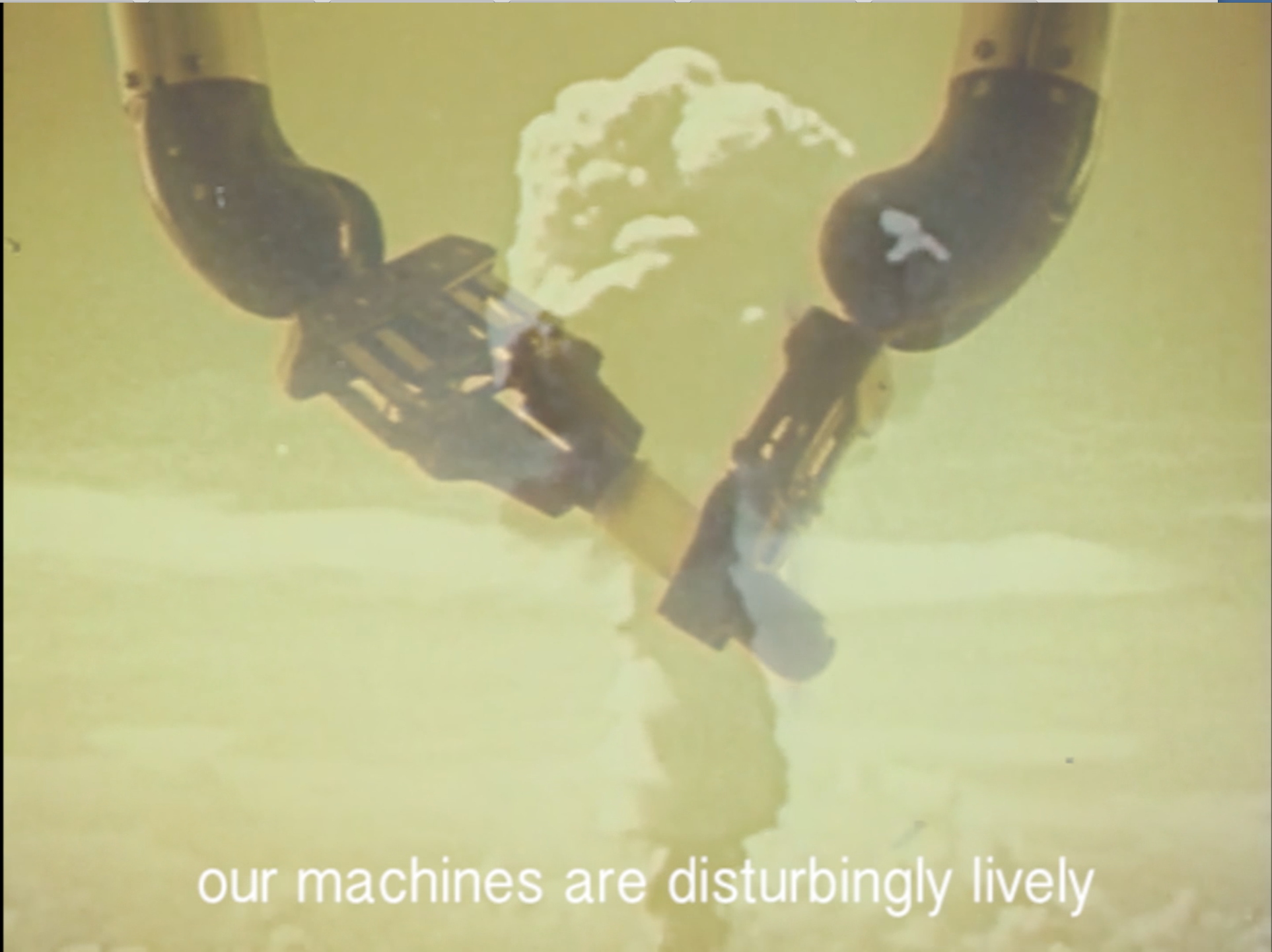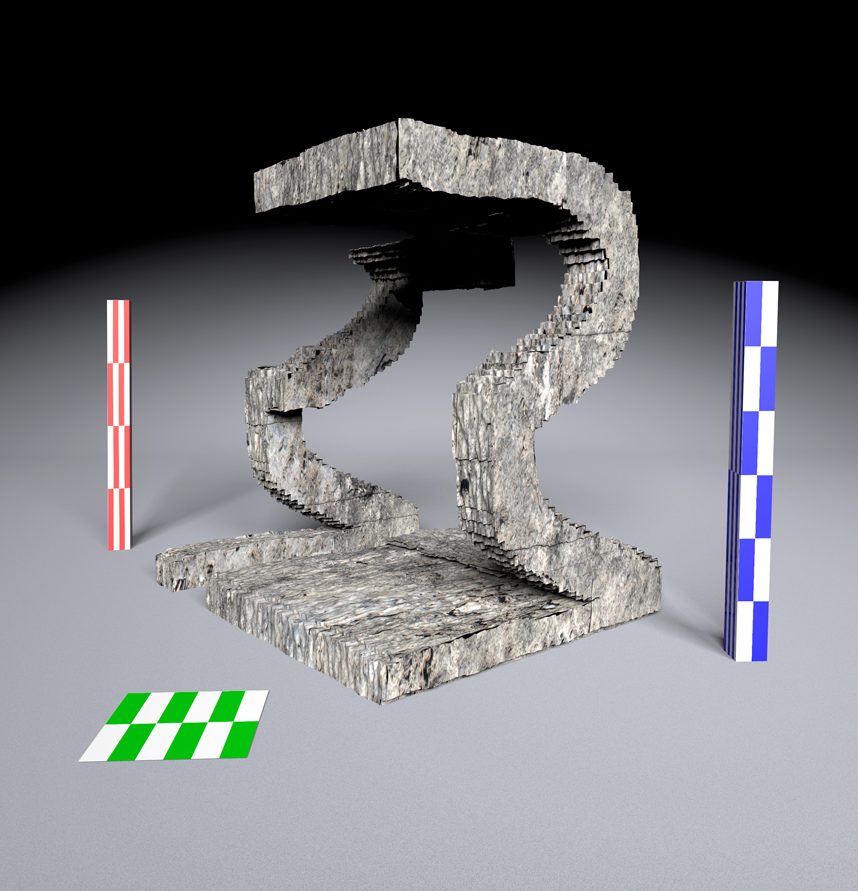Paperdolls (2022) by Julia Eldred invites us to the mind of a young child as she navigates the creation and destruction of her art and thus her ability to cope with the complex world around her. Julia’s video pieces Anxiety/Happiness (2015) were some of the first works of art published in Digital America.
:::
Baby hands grip shining scissors. She cuts, cuts, cuts. Easy smiles, youthful and unblemished.
Rosy cheeks and little white teeth and a silken ribbon in her hair. A girl.
She spends her favorite hours of the day crafting pretty things. She is a creator.
Miss Miller taught her how to fold, fold, fold and snip, snip, snip. The head, big and round. The arms, long and slender. The skirt, a-line and scalloped. Paperdolls emerge from pulpy
construction paper in peony and sunshine and emerald. After the pattern is cut, they flutter and unfold, one after the other, tied eternally at the wrists. A long chain of beauties, of sisters.
The girl loves them all. They model elegant gowns that she embellishes with ink and glitter,
ornament and texture. Each paperdoll distinguishes herself, owns her own style. Like snowflakes or fingerprints.
The girl dreams. She requires daddy’s help for her one big idea: festoon the paperdolls across her new big girl bedroom with the lilac walls and the enormous, fluffy bed. Rarely is she allowed her own space. Tonight, she will finally be away from the baby, assembling her own universe. The colossal bedroom expands far beyond the limits of the nursery. Many walls to adorn and corners to fill.
At the round table in her kindergarten classroom, she toils diligently on her opus. Her mind
wanders, tumbles, somersaults. She welcomes the independence, the freedom. In the little plastic chair, her legs kick, not yet reaching the ground. Her impulses and intuition lead her by the hand. She brushes hair from her face, reaching for new colors, brighter accents. Endless choices.
Here in the classroom, the formulation process begins. The girl must be taught, so that she can grow faster, so she can learn to think, so she can know. It is agreed: she cannot flourish without instruction and guidance. Her mind, her body require nourishment. The girl learns self-expression. She learns of friendship and of kindness. She learns how to think of herself and what others think of her. She is watched, even then. Hiding behind Mommy’s leg at the grocery store, strangers shower complements.
“Such pretty hair.”
“Such pretty green eyes.”
“What a darling dress!”
Tall ones intimidate her sometimes, unless they are mommy or daddy, of course. She backs up, cranes her neck to see their faces. Even then, she finds mysteries there. Voices descend from high above. Unpredictable arms swing down, clutch at her shoulders, her hands, her hair. She sustains pats on the head. Tall shadows engulf her fully in gloom. Though, sometimes, grownups can be silly, she thinks. They get weepy and yell-y and laugh at things that are not that funny. The world is simple in her eyes. Black and white. What are they missing?
Be nice. Share. Make pretty things. Smile. The path has been laid out.
The girl goes on, making her paperdolls. She unravels a new strand. They all hold hands. She likes this about them. Holding the hands of mommy and daddy, in between them, is when she feels the most protected. Linked and embraced, every doll feels safe.
In her new bedroom, paperdolls will surround the girl. She yearns for the orbit of pretty things,
protection from every angle, shelter from solitude. If she holds the little round hand of the doll at the end, she can join the chain herself. At night, when she’s disappearing into the darkness, she plans to hold the hand of the last one. She really hates being alone, even though she knows hating is not nice. When she loses Mommy at the store or at the park, she feels like a freed balloon, floating far, far away.
The girl tries not to rush her creation, tries not to smudge the details, tries not to draw outside the lines. Each one has a pretty and perfect destiny. If she makes a mistake, she knows, she’ll have to start over from the beginning. She tries to slow down, to breathe deep like mommy always says, but excitement zaps through each motion. If she completes her art before the last school bell, her paperdolls can join her in her bedroom tonight, her first night enclosed in the unfamiliar space.
Suddenly, Miss Miller calls for recess. On a regular day, the girl wouldn’t mind hopping up from her seat and skipping into the crisp outdoors.
Today is different. She’s distressed to be separated from her creations. Miss Miller sees that she hasn’t followed the other children. Miss Miller tells her that she can resume as soon as they return from the playground. Still, she stays seated, even though she knows to follow the leader. Miss Miller kneels down, meets her eyes. “Do you want me to push you on the swing?”
The girl nods silently. As they step outside, the girl grasps a fold of Miss Miller’s long, velvety
skirt and feels the bright sun on her skin. She sits on the swing and looks back at Miss Miller
again and again.
Miss Miller is beautiful. The girl thinks she might want to be like Miss Miller someday. She is
living softness. Her hair, her skin, her clothes. Not all the grownups are so inviting. Grandma
isn’t. Grandma’s hair is stiff, and her dresses feel rough, and she doesn’t smile all that often.
Daddy makes her hug grandma whenever they visit. She dislikes grandma’s smell and hard
embrace, but she does it anyway, because daddy says so. The girl wonders how a little girl can grow to be a lady like grandma.
Once finished on the dropping, swaying swing, the girl bounces impatiently by the school door. She surveys Miss Miller’s progress around the playground. The classroom key jingles around her wrist. The girl wishes she could fly with outstretched feathery wings, dive down and snatch away the key. All she wants is to continue working. She likes being a little kid, well, a big girl little kid, because she likes to swing and spend the day making paperdolls. Sometimes, just sometimes, she wishes to grow up big and tall because grownups have the keys.
The bell rings at last, and Miss Miller approaches to grant access. The girl tries to walk steadily, to follow the rules, but holding back her sprinting legs is hard.
Finally, she arrives back at her desk, but the paperdolls have vanished. She looks around
anxiously to ensure she entered the correct classroom; she’s made that mistake before. It seems right. There’s Miss Miller. There’s the wooden rocking chair at the front of the room and the reading circle in the corner. Here’s her desk. She thinks back, and she knows, she just knows, this is right where she left them. She remembers looking back at them as she and Miss Miller left the classroom. Her paper and markers and glitter remain, monuments to creation.
No paperdolls! It doesn’t quite make sense. She examines the ground under the chair. On hands and knees, she crawls beneath the table, determined to search every inch of the class, the school if she must. “What are you doing under there, honey?” Miss Miller peers through the dusty shade under the table.
“I can’t find my paperdolls,” the girl says and then becomes awfully sad.
“It’s okay, honey. Why don’t you come out from there?” Miss Miller reaches out her hand. The
girl crawls out, and Miss Miller guides her up.
Through tears, the girl says, “I don’t know what happened to them. I left them right here.”
Miss Miller rubs a circle into her small back. “We’ll find them.”
Miss Miller looks under books, under jackets, under other projects. The girl watches her, and
thinks really, really hard of where they could be. She slowly spins, taking in the whole room. She notices the trashcan by the door. The imposing figure is as tall as her. She could fit inside, drown in the dark black plastic.
The girl steels herself and approaches. Sometimes you have to do things that scare you. That’s what daddy said when the doctor wanted to stick that big needle in her arm. She tiptoes and grasps the edge of the trash can with small, pink fingertips. She jumps to see better, but that attempt fails. She selects an empty chair from the nearest table. With great effort, she pushes it to the trashcan. She climbs aboard. All she sees down in the cavernous bag is a crumpling pile of peony and sunshine and emerald. She covers a gasp with her tiny hand.
She runs over to Miss Miller and tugs on her skirt. “Yes, darling?” Miss Miller says.
“Um, I think, um, someone threw them in the trash.”
Miss Miller’s eyebrows furrow, and she stomps heavily to the trashcan. She reaches in and
retrieves the masticated band of paperdolls.
The girl holds back more tears. Grandma says that crying makes a horrid face, and she knows she should avoid that ugliness. She simply can’t help it because her creations have been destroyed. She thinks, that’s a fair reason to cry. Globular tears slip from her eyes.
A snotty-nosed boy walks over to her and says, “They’re not even pretty.”
“Yes they are.” It’s as much as she can muster.
Miss Miller commands the attention of the class. She asks for the culprit to reveal him-or-her-
self. The room is silent. She demands again. Still, only a void.
The perpetrator remains unnamed even as the final bell rings. The girl suspects the snotty-nosed boy, or maybe the pig-tailed girl, who name-called her last week. None of that truly matters now though, because her beloved daughters are crushed and crumpled.
Miss Miller attempts restoration, flattening out the dolls, using glue, using tape. The girl watches on as grownup hands endeavor to remedy tears, cracks, and green bruises. Miss Miller earnestly struggles to reassemble the broken girls.
It’s no use.
The girl returns home empty-handed. She sleeps alone in her big room with the lavender walls and fluffy bed, trying not to disappear. She dreams of the paperdolls disintegrating and
reassembling. They are unrecognizable, even to themselves. Not yet complete.
:::

Julia Eldred is a writer and artist living in Pittsburgh. She holds an MFA from Chatham University. Paperdolls, her linked collection of short stories that explores femininity and millennial identity, was awarded Best Thesis in Fiction. Her work has appeared in Juked and Rag Queen Periodical. She enjoys crafting, building eclectic Spotify playlists, and taking long road trips to visit family. Find her at www.juliaeldred.com.



